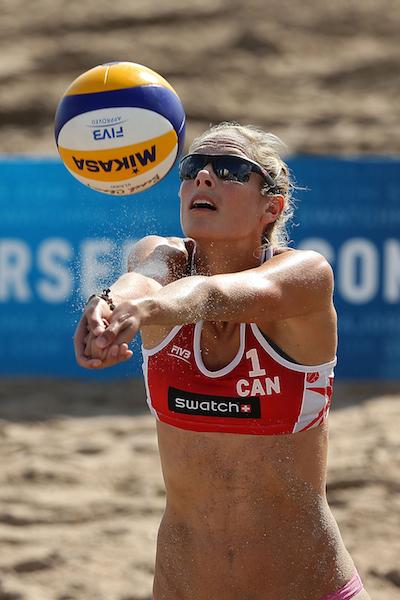people will forget what you did,
but people will never forget how you made them feel."
-- Maya Angelou
When I was a young athlete, I was not a good teammate. I know I was a good kid; I was kind and respectful, I worked hard, and I was inclusive, but when I stepped onto the court or field, the only thing I cared about was winning. I'm not saying there is anything wrong with that; I wish more kids had a never-say-die attitude on the court. My problem was that my extreme competitive nature manifested itself as being very aggressive and sometimes hurtful in my on-court interactions with my teammates.
I had good intentions; my objective was always to inspire my teammates to perform and to encourage them to believe in themselves. Being so young, though, and having never been guided in the proper way to do these things, my words probably had the opposite effect. As I matured, and was exposed to different ways of thinking, I learned how to get the most out of my teammates without getting in their faces and leaving them feeling sad.
The first time I read the quote at the beginning of this post was an "Aha" moment. It perfectly articulated what I had known for a long time, but had never said out loud. I immediately thought of my teammates from my club days, and I decided at that moment that it would be a sort of mantra for me. I love it because I think it applies to absolutely everyone, no matter how old you are, what your job is, or how good you are at what you do.
 I like examining this principle from an athletic point of view. You may be the most talented, impressive athlete on your team or in your entire age division, but if you are always putting yourself above the best interests of the team, or if you constantly make fun of the weaker players in the group, no one will care how good you are. The only thing your teammates will remember about you down the road is that you made them feel like they didn't matter. Why? Because people don't remember who scored the most points, or who got the most awards, or who had the most scholarship offers. People remember how you made them feel.
I like examining this principle from an athletic point of view. You may be the most talented, impressive athlete on your team or in your entire age division, but if you are always putting yourself above the best interests of the team, or if you constantly make fun of the weaker players in the group, no one will care how good you are. The only thing your teammates will remember about you down the road is that you made them feel like they didn't matter. Why? Because people don't remember who scored the most points, or who got the most awards, or who had the most scholarship offers. People remember how you made them feel.
As I mentioned earlier, this life lesson applies to absolutely everyone. Coaches: you might be a great technical coach, and have a gift for developing athletes. You may have won national championships, but if you constantly alienate your athletes during practice, or treat the bench players like they are invisible, or put your own reputation at the forefront, that's all you will be remembered for. Parents: you might bring the best snacks, be the loudest cheerleader, and drive your kids all over the planet. If you are always saying nasty things about the player playing in front of your kid or questioning the coach's decisions to the other parents, though, they will only remember you making them feel uncomfortable and being a poor "teammate."
Today, I still call out teammates for controllable errors (attitude, effort, communication) and repeated miscues. It's part of being a leader, and my competitiveness will never go away. It's who I am. Now, though, with my mantra in mind, I communicate in a way that raises my teammates up, instead of bringing them down. I address the whole group, and if I do talk to one person, I do it in a way that shows them that I believe in them, instead of leaving them feeling insecure. I work extremely hard to be the best volleyball player I can be; it's important that I work extremely hard to be the best teammate I can be too.
 I'm not saying that we should never say negative things, or that we have to be positive all the time. That's not the case at all. I'm saying that there is a right way and a wrong way to communicate the negative things and push teammates to be better.
I'm not saying that we should never say negative things, or that we have to be positive all the time. That's not the case at all. I'm saying that there is a right way and a wrong way to communicate the negative things and push teammates to be better.
For example, I recently played with a very young setter who lacked confidence setting behind (I am an opposite), and who was intimidated by me, being a much older player and a foreigner. After a few rough games where she had trouble setting everybody, she asked me to meet with her. She told me that the reason she was avoiding setting me, and why she was struggling to set during games, was because I made her scared. My instinct was to tell her that it was her job to put her hitters in a position to score no matter what, and that it wasn't my fault she was struggling setting her teammates.
Instead, I apologized for making her feel that way, and said that I would be more mindful of my words and actions so that she would feel more comfortable. I told her that I would always try my best, no matter what type of ball she gave me, and that everyone struggles with confidence sometimes. After that conversation, her setting and confidence during games started getting better, which helped everyone on our team perform better.
Above all else, people remember how you make them feel. I encourage you to keep that in mind as you live your life. You will be amazed at how slight alterations to your actions, words, or attitudes affect the people around you for the better. When all is said and done, I want the people I interact with to have good memories of our time together, no matter how long or short it may be. I want them to remember me making them feel like they matter, and it's never too late to start thinking that way.
Sarah Pavan is a pro volleyball player who finished fifth in the beach competition at the 2016 Olympics while representing Canada. After helping Nebraska win the NCAA championship and being named national college player of the year in 2006, Pavan has competed professionally throughout the world, including Italy, Brazil, Korea and China. Read more of her writing on SarahPavan.com. Follow her on Twitter @SarahPavan.





